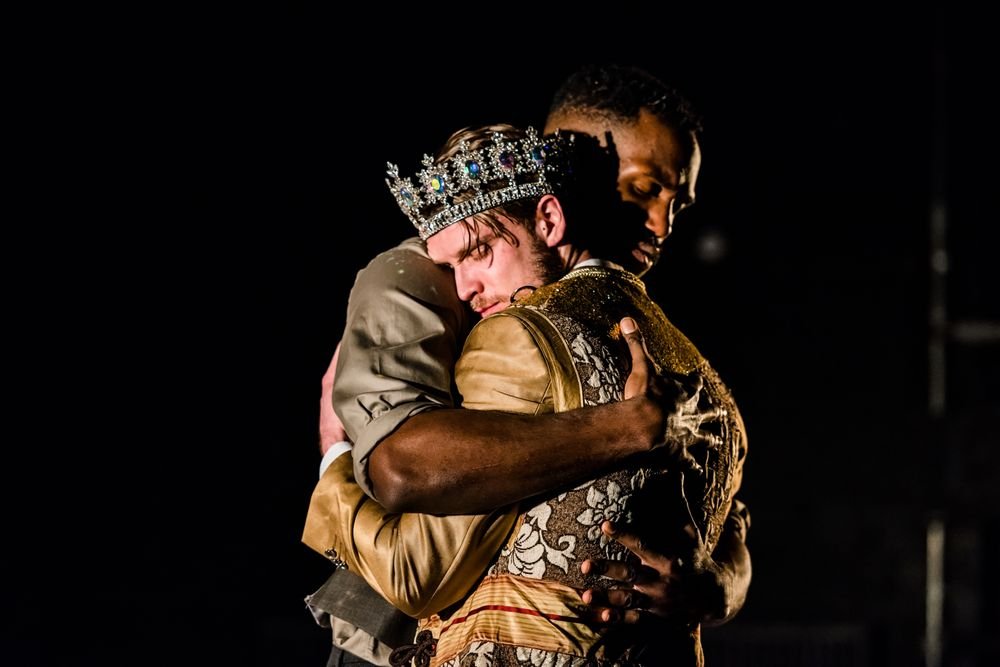We are delighted to share the abstracts for the MSA’s sponsored panel, ‘Intersectional Marlowe’ at this year’s MLA Convention, which will take place at 7pm EST on Zoom. A recording will be available to conference registrants on demand. Our speakers are Anita Raychawdhuri (University of California Santa Barbara), Emily MacLeod (George Washington University), and Daniel G. Lauby (University of New Hampshire), with Elisa Oh (Howard University) as respondent.
Anita Raychawdhuri:
Marlowe’s Edward II: Penetrating Politics, Nation Building, and the Possibility of Queer Utopia
Christopher Marlowe’s Edward II explores how queer desire participate in the simultaneous creation and challenging of England’s national identity. Due to desire for empire abroad as well as anxiety over local populations in England, a national identity was articulated through a fantastical allegedly legible whiteness. Working from Kim F. Hall’s work on race and empire, Ian Smith’s linkeage of race and queerness in early modernity, and Alan Bray articulation of sodomy in the early modern period, I suggest that Marlowe uses queer desire to work through burgeoning nationhood in England, burgeoning in the sense that the importance of legible whiteness was becoming more centered and defined in this moment of global expansion and interaction. My argument has multiple parts, the first is how Marlowe presents homoeroticism in Edward II, the second explores links of foreignness and colonial expansion to queer desire, the third is how these links articulate ideas of Englishness and whiteness, and finally how the play utilizes metaphors about oceans and cultivatable land to theorize desire and its potential to reify or undermine the calcification of a national identity.
Emily MacLeod:
“Servile Spirits”: Race, Sexuality, and Choreographies of Service in Marlowe
Christopher Marlowe’s Doctor Faustus and The Jew of Malta feature characters who perform different types of service, from Mephistopheles’ metamorphic powers to Ithamore’s villainous apprenticeship. I argue that the servitude performed in these two plays constitutes a specific skill set of theatrical labor on the part of the actor that ties into other racialized performances in the early modern repertory. Medieval blackened devils have been noted as precursors to performances of racial difference, and reading Mephistopheles alongside Ithamore here offers potential for an intertheatrical definition of racialized performance. Repertory becomes a medium to be seen through that contributes to the work of early modern racecraft through repetitive spectacular displays of actor skill, movement, and stage properties that tie into other performances of gender, sexuality, class, and ability.
Daniel G. Lauby:
Ovidian Drag: Deconstructing Gender and Class in Marlowe’s Edward II
What might drag performance look like in Edward II, and how it might prove a useful lens of analysis for examining the intersection of gender, class, and desire. This conference paper builds upon the argument that class rather than same-sex desire lies at the center of Christopher Marlowe’s Edward II. However, I complicate that argument by attending to the intersectionality of class and gender in relation to same-sex desire. Using drag theory, I attend to axes of identity within drag performance in which gender drag also entails class drag, focusing primarily on moments of slippage between cross-dressing and drag in Gaveston’s imagined staging of the Diana-Actaeon myth. Within this drag performance, Gaveston reveals the mutual construction of class and gender as well as the consequences of queering those constructions. Through this revelation, Marlowe challenges a hegemony dependent upon the regulation of identity in a continuation of an anti-nationalist project that centers libertas and amor as the proper loci of power.
